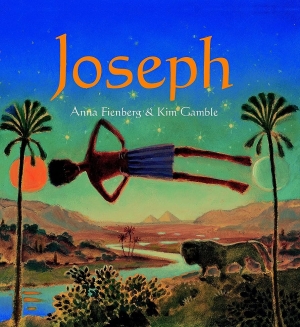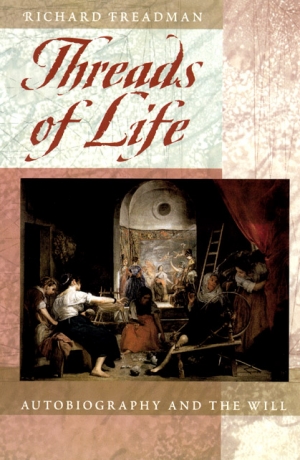Archive
Dianne Dempsey reviews 'The Blind Eye' by Georgia Blain and 'Bella Vista' by Catherine Jinks
Reading Australian novels is often like gazing through an album of snapshots taken by various photographers attending the same party. The subject matter will depend on what stage of the evening the photos were taken – all the way from pre-dinner drinks to the finale of a Bacchanalian brawl – and it will depend, of course, on who is taking the photos. What is the photographer looking for? Who are the subjects that captivate?
... (read more)The picture book format is the workhorse of children’s literature. It is expected to entertain and enlighten audiences ranging from infants and toddlers to young adults. Eric Carle’s The Very Hungry Caterpillar, the quintessential picture book for very young readers, introduces some basic concepts through simple text and colourful collage. At the opposite end of the spectrum, Isobelle Carmody’s fantasy novel, Dreamwalker, published earlier this year with illustrations and design by graphic artist Steven Woolman, has sophisticated teen appeal.
... (read more)Dear Editor,
Defending Inga Clendinnen against my criticisms (ABR, July 2001), John Clendinnen attributes to her a controversial view about the nature of moral judgment. I don’t hold it and, if I were to judge solely by her practice, I would be surprised if she does. Be that as it may: I’ll try to put my points by keeping philosophical assumptions down as much as possible.
David McCooey reviews 'Threads of Life: Autobiography and the will' by Richard Freadman
Samuel Johnson once wilfully said, ‘Sir, we know our will is free, and there’s an end on’t.’ One can understand Johnson’s sentiment. Talk about will can be interminable. If we feel our will to be free, does it matter if it really is? Right now, I’m willing myself to write this review, instead of having dessert or watching Big Brother (‘Will to Power in Big Brother: Or, Are You Smirking at Me?’ would make an interesting paper). But my will is weak. I’ve just returned from making a cup of tea. Writers – like everybody else – are notoriously good at finding distractions. But what does it mean to say that my will is ‘weak’? How much am I willing my writing of this review, and how much am I forced to write it? Is writing determined by economics (need for money), psychology (desire to see one’s name in print), or class (aspirations learned through upbringing and education)? And yet I’m free, am I not, to pass my own judgment on the book? Sooner or later, we give up and go to the pub with Dr Johnson.
... (read more)Gideon Haigh reviews 'Virtual Murdoch' by Neil Chenoweth and 'Working for Rupert' by Hugh Lunn
In the last week of June, after a period in the doldrums, the News Corporation share price suddenly took wing again. Buyers piled in. A lazy few hundred million dollars were added to the company’s value. The basis of the revaluation? Apparently, Rupert Murdoch himself had descended from Olympus to participate in a presentation to sharebrokers in Sydney. Enraptured at this visitation, analysts had upped their profit projections for News.
... (read more)In the last however many years, we have seen the rise of a kind of faction in this country which has enabled people like Drusilla Modjeska and Brian Matthews to show what scintillation and what fireworks may follow when the life of the mind (with whatever attendant discursive zigzagging) allows itself to imagine a world ...
... (read more)Tony Barta reviews 'An Indelible Stain? The question of genocide in Australia’s history' by Henry Reynolds
This book is suspended from a question mark, and all of Australia’s history is suspended with it. Henry Reynolds has been doing it for twenty years. What happens if we try to understand the coming of the Europeans from the Aboriginal viewpoint, from the other side of the frontier? Did the European invaders really think they were occupying a country that belonged to no one, a terra nullius? If we, the white people, had a legal title, how did we acquire it? If everything was fair and above board, why then this whispering in our hearts? And if so many big questions were left unanswered, if so many black people died so that we could live in prosperous comfort, Why weren’t we told?
... (read more)Rhetoric has a bad name. And for good reason. Not only does it suggest insincerity and verbal manipulation, it also has a strong odour of scholasticism about it. It is with some trepidation, therefore, that I turn to ancient rhetoric to urge upon you two terms I find useful in thinking about contemporary Australian poetry. I will make it as palatable as I can and hope it doesn’t choke going down. Whether it is nourishing or not, I leave you to decide.
... (read more)Craig Sherborne reviews 'Dawn: One hell of a life' by Dawn Fraser
Dawn Fraser had a hundred or so pages of fair prose in her and she put them in this book, her autobiography. The trouble is that the book is 400 pages long. But that’s not a bad result. If a David Malouf or Helen Garner lined up for an Olympic swimming final, you’d expect them to sink.
... (read more)Geordie Williamson reviews 'Arriving at Night' by Lisa Merrifield
There is about Lisa Merrifield’s second novel a quality of aqueousness, an obsessive returning to states of immersion, whether in water, sleep, waves, a glass of gin. Hers is a superb exploration of the gelatinous margin between mind and world, innocence and experience, madness and sanity – those interregnums in the government of the self. And while it is from the weird clarity of this amniotic silence that Arriving at Night draws its various strengths, it is the same somnolence – the torpor of fiction in aspic – that comprises its singular flaw.
... (read more)







